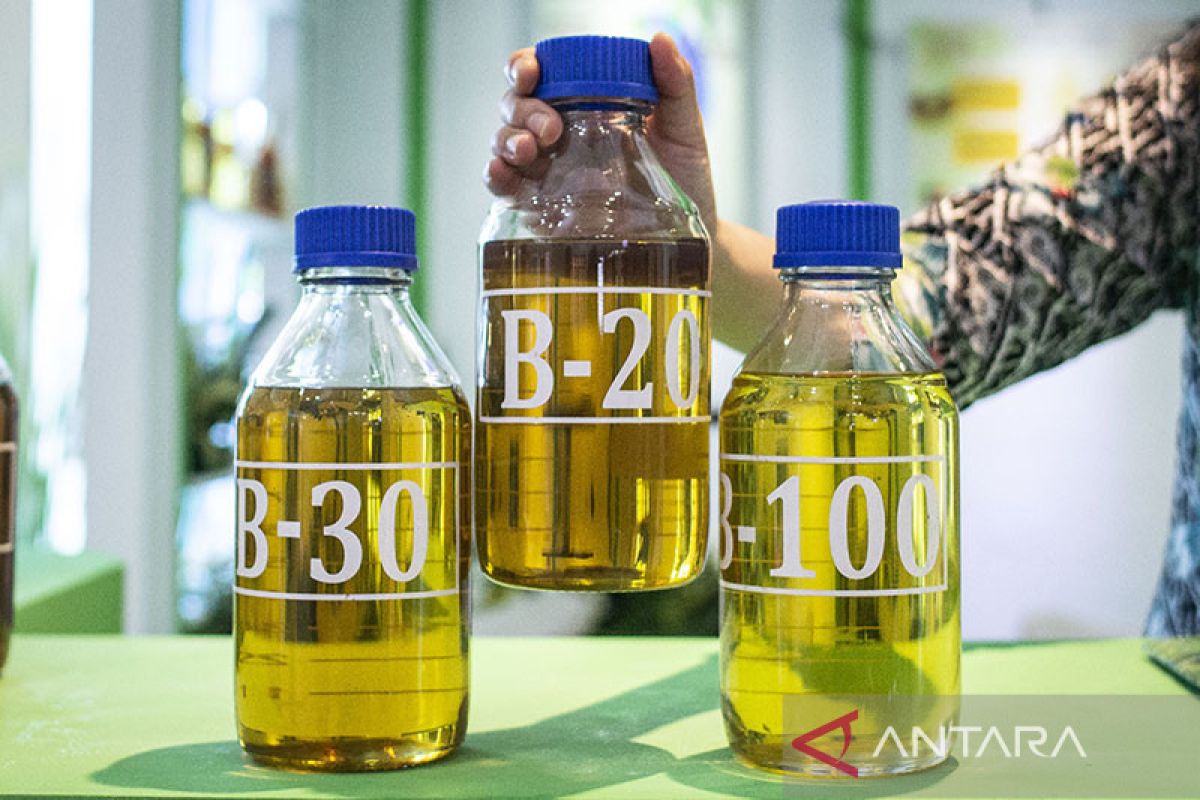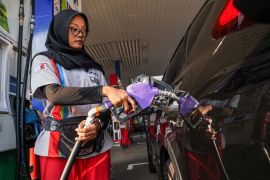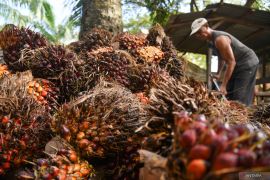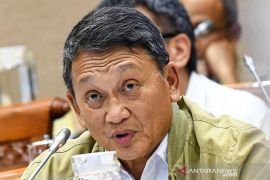"In 2021, the economic value from the implementation of B30 reached more than US$4 billion, and it has succeeded in reducing greenhouse gas emissions by up to 25 million carbon dioxide equivalent," said Minister of Energy and Mineral Resources, Arifin Tasrif, in a statement issued here on Thursday.
The government is not only working on developing B30, but also planning to develop green fuel, he added.
Currently, the government is conducting several comprehensive studies, including preparing a techno-economic study, regulatory framework, incentive facilities, infrastructure, setting product quality standards, as well as developing supporting industries.
Besides creating B30 products, the government has also succeeded in conducting flight tests of aircraft using 2.4-percent bioavtur as part of efforts to reduce emissions in the aviation sector.
"This success increases our confidence and enthusiasm to encourage the commercialization of bioavtur," said the minister.
Related news: Indonesia saves $4.54 billion in foreign exchange by using biofuel
In the future, the ministry will implement sustainability indicators such as economic, social, and environmental indicators. In 2022, it will also start implementing voluntary biodiesel sustainability indicators.
"In the near future, we hope that this biodiesel sustainability indicator can be applied both upstream and downstream," Tasrif said.
Biodiesel is a reliable alternative to fossil fuels and is strategic as it has a positive influence in various aspects, he added.
It is a biofuel that consists of a mixture of methyl ester compounds from long-chain fatty acids and is intended as an alternative fuel for diesel engines.
Tasrif said he believes that biofuels produced from renewable sources such as palm oil can provide added value if the commodity is developed through downstream agriculture in the country.
These fuels can also stabilize crude palm oil prices, improve the economy for small farmers, produce fewer greenhouse gas emissions, reduce oil imports, save foreign exchange and trade balance, create job opportunities, as well as maintain energy security.
For 2022, the Ministry of Energy and Mineral Resources has set a biodiesel allocation of 10.15 million kiloliters for the domestic market. The policy to increase this allocation has taken into account the assumption of a 5.5-percent growth in diesel demand, with estimated demand pegged at 33.84 million kiloliters.
Related news: Biodiesel policy accelerating transition to clean energy: Minister
Related news: Environment Ministry researcher preparing biofuel from tamanu oil
Translator: Katriana
Editor: Suharto
Copyright © ANTARA 2022












